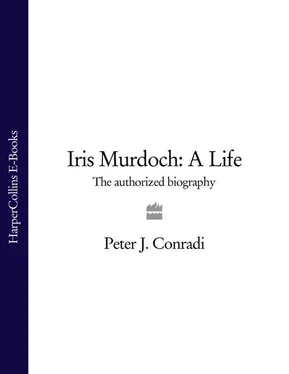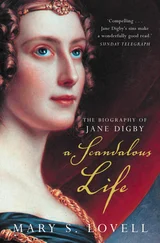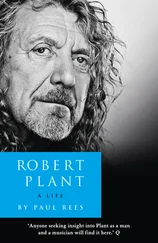Louisa loved her first-born, Hughes. She used to carry him, at the age of three and a half, to the small National School in Hillhall, and then cry all the way back home because she could so little bear to leave him. Hughes went on to Brookfield, a Quaker boarding school in Moira, outside Belfast. It was a good school, and Wills’s mother and his Dublin cousins alike were Quakers. 9Hughes would send his washing home each week for Louisa to launder, and this became the stuff of family legend: she would cut off all the buttons from the garments before the wash, and sew them all on again afterwards before sending them back, week after week. Probably this was to avoid the buttons being chewed up in an old-fashioned mangle. That the story was handed down suggests that there were other ways of proceeding. ‘Did you ever hear of anything so stupid?’ asked Louisa’s granddaughter Sybil.
The year before her death in 1895, Louisa’s mother-in-law Sarah wrote to her about the well-being of the next baby, confusingly another Sarah, aunt to-be of Iris. Great-grandmother Sarah writes affectionately to her daughter-in-law in an educated cursive but unpunctuated script. Some words are misspelt.
Ballymullan House,
Lisburn, Sep 1st 94
My dear Lousia
I can imagine how you will be thinking of Sara it will seem wonderfull to you to hear she never murmured all yesterday nor going to bed nor going asleep and I kept out of the way so Rose got her ready and all was warm she had a lot of little things to amuse her and took her up Annie was here at the time as I did not wish her to begin to fret I sent them early and we stood and lisined not a word Rose told me this morning she went over and over her to she tired and then lay down I called Rose at 5 she went out to milk at once and had milked before she awoke I left my door open that she could come in but she called out MaMa and I called Rose that was the only time she cried not the only time she has said MaMa but that was the only cry she had all the time I hope you are enjoying yourself ever your Afft Mother Sarah Murdoch.
I will be glad to see Wills home he is very soon missed here Wills had taken Louisa, and probably the four-year-old Hughes, to the smart Dublin Horse Show, a key event in the Irish – and especially the Anglo-Irish – social calendar well into the twentieth century. Hughes was to inherit his father’s love both of horses and of betting on them. Both Sarah and Louisa were clearly anxious about Louisa’s absence from her second baby, yet the fact of her absence might suggest that Hughes had more of her love than did either of his two sisters Sarah and Ella. Ballymullan House was not a large establishment: as Sarah’s letter makes clear, Rose doubled as nursemaid and milkmaid. The family were not well enough off to employ a wet-nurse.
In the event, Ballymullan House did not pass to Hughes. There were several years of mounting debts, and probably the farm failed. Wills went to a funeral in the rain, developed pneumonia and died, intestate and aged only forty-six, on 1 December 1903. The family address at the time was 3 Craig Fernie Terrace, Lisburn Road, Belfast. The Certificate of Probate on Wills’s estate describes him as a ‘retired farmer’ and tells us that he left £1,274. The farm had been sold the year before.
Louisa was left on her own to bring up Hughes, Sarah and Ella. So bereft was she without Wills that she would often say her children alone kept her going. It is not clear how they lived, in those days before widows’ benefits. She was poor, but uncomplaining, and somehow made do. Despite the family burial plot at Deriaghy being in a Church of Ireland graveyard, the family belonged mainly to Hillhall Presbyterian congregation, and partly to Malone Presbyterian Church. After a split in the latter some breakaways, such as Grandmother Louisa and Aunts Ella and Sarah, counted themselves Irish Evangelical, though the two aunts, on marrying, took the faiths of their husbands: Baptist for Ella when she married the carrier Willy Ardili, Brethren for Sarah when she married the quiet, easy-going self-taught dentist Willy Chapman.
Sectarianism in Ireland is of course not a two-cornered but a three-cornered fight, with Catholic, Church of Ireland (i.e. Anglican) and the various powerful competing Non-Conformist traditions all vying with each other. 10Moreover the Protestant Non-Conformist traditions in Northern Ireland are intensely individualistic, quarrelsome and fissiparous. Brethren, Baptists and Elamites were at the cutting edge of turn-of-the-century Northern Irish Protestantism, much subject to internal splits. By 1911 there were no fewer than six sects with less than ten members. 11Iris, direct heir to exactly such a tradition of stubborn, radical Ulster dissent, developed a ‘faith’ that emphasised the urgency and loneliness of the individual pilgrimage.
Iris’s formidable Aunt Ella spent many years as a missionary with the Egypt General Mission, in which it did not much matter what denomination you belonged to. She learnt and spoke good Arabic and ‘used to teach the young Egyptians to love God’. 12Her older sister Sarah spent many of her holidays on a farm near Carryduff, five miles south-east of Belfast, belonging to an uncle who was ‘saved’, Thomas Maxwell. At around nineteen she was, together with her cousins, ‘saved’ too, and on her marriage she became a member of what on the mainland are sometimes known as Plymouth Brethren, in Ulster simply as ‘Brethren’. Willy, her husband-to-be, was Treasurer to the Apsley Hall Brethren at Donegall Pass. Even today Ulster ‘Brethren’ – unlike their Scots cousins – have no women elders.
Both the Yeats and the Parnell families, like Iris’s, had Brethren connexions.* The Brethren originated in Aungier Street, Dublin in 1827–28 when a group of men including a doctor, a lawyer, a minister and a peer started meeting together without any ritual, set prayers, forms of service or ordained ministry: they wished to return to the simplicity of the early apostolic Church. They believed in a ‘timetable’ of Last Things and taught that the saved can be caught up in the ‘Rapture’ before Christ’s return, and so spared hellfire.
Willy and Sarah Chapman belonged to the Open Brethren, who split off in 1848, and who differ significantly from Exclusive Brethren. Open Brethren both fraternise and worship freely with other evangelistic Christians, and practise believers’ (not infants') baptism. Although to leave the Church was still a momentous and alarming thing to do, your family might not necessarily refuse to break bread with you afterwards. Iris was pleased when her second cousin Max Wright, who taught philosophy at Queen’s University, Belfast, wrote a book, a painfully humorous account of just such a departure. †Wright’s family home contained thirty-seven Bibles. At fifteen he had shouted a gospel message at an unresponsive terrace of red-brick houses. There was constant pressure on Brethren to go all out for salvation, which led, one commentator believed, to a resulting impoverishment of outlook. Sarah and Willy Chapman’s three children, Iris’s closest living relatives, were bought up as Open Brethren, and Iris and her parents spent the second part –after Dublin – of many of their summer holidays before the Second World War with these cousins. Muriel, the eldest, was Iris’s particular ally.
The years before the First World War were the era of Edward Carson’s inflammatory Unionist speeches against Home Rule, of ‘not-an-inch-Jimmie’, of ‘Ulster will fight and Ulster will be right’, of a developing siege mentality among many Ulster Protestants. While the Murdochs and Maxwells who were Brethren were unquestionably Unionist, they also – even if male and so eligible – did not dream of voting, ‘For we have here no continuing city, but we look for one that is to come.’
Читать дальше










